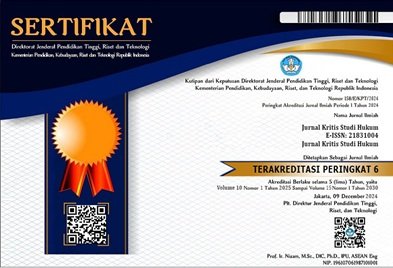IMPLEMENTASI KEBIJAKAN BUPATI TENTANG AGROWISATA PERKEBUNAN KOPI DI DESA COLOL, KECAMATAN LAMBALEDA TIMUR, KABUPATEN MANGGARAI TIMUR
Kata Kunci:
Kebijakan Bupati, Agrowisata, Perkebunan KopiAbstrak
Implementasi kebijakan Bupati tentang agrowisata perkebunan kopi di Desa Colol, Kecamatan Lambaleda Timur, Kabupaten Manggarai Timur merupakan salah satu langkah strategis dalam mengembangkan sektor pariwisata berbasis pertanian yang dapat memberikan manfaat ekonomi, sosial, dan budaya bagi masyarakat setempat. Desa Colol, yang terkenal dengan produksi kopi berkualitas tinggi, memiliki potensi besar untuk dikembangkan sebagai destinasi wisata agrowisata. Dalam implementasinya, kebijakan tersebut mencakup berbagai aspek, seperti pelatihan kepada petani kopi mengenai cara bercocok tanam yang ramah lingkungan, peningkatan fasilitas wisata, serta promosi produk kopi lokal. Selain itu, kolaborasi antara pemerintah daerah, masyarakat, dan sektor swasta juga menjadi elemen penting dalam keberhasilan program ini. Pendekatan berbasis komunitas yang melibatkan petani kopi dalam proses pengelolaan agrowisata diharapkan dapat menciptakan lapangan kerja baru serta memperkuat identitas budaya lokal. Namun, meskipun kebijakan ini menjanjikan berbagai potensi positif, tantangan dalam implementasinya tetap ada, seperti keterbatasan infrastruktur, kurangnya sumber daya manusia yang terlatih di bidang pariwisata, serta kesadaran masyarakat tentang pentingnya pengelolaan agrowisata yang berkelanjutan. Oleh karena itu, perlu adanya evaluasi dan perbaikan berkelanjutan agar kebijakan ini dapat mencapai tujuannya secara maksimal. Dengan demikian, agrowisata perkebunan kopi di Desa Colol dapat menjadi contoh sukses pengembangan pariwisata berbasis pertanian yang bermanfaat bagi masyarakat lokal.
The implementation of the Regent’s policy on coffee plantation agrotourism in Colol Village, Lambaleda Timur District, East Manggarai Regency is a strategic step in developing agriculture-based tourism that can provide economic, social, and cultural benefits for the local community. Colol Village, which is famous for its high-quality coffee production, holds great potential to be developed as an agrotourism destination. This policy aims to improve the welfare of the community by increasing income from the tourism sector and managing coffee plantations sustainably. In its implementation, the policy covers various aspects, such as training for coffee farmers on environmentally friendly farming practices, improving tourism facilities, and promoting local coffee products. Moreover, collaboration between local governments, the community, and the private sector is also a key element for the success of this program. The community-based approach, involving coffee farmers in the management of agrotourism, is expected to create new job opportunities and strengthen local cultural identity. However, despite the promising potential of this policy, challenges in its implementation remain, such as limited infrastructure, the lack of trained human resources in the tourism sector, and public awareness of the importance of sustainable agrotourism management. Therefore, continuous evaluation and improvement are needed for the policy to achieve its goals optimally. Thus, coffee plantation agrotourism in Colol Village can serve as a successful example of agriculture-based tourism development that benefits the local community.





